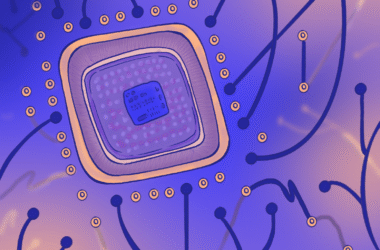The subjective experience of pain varies drastically between people, but subjective measures of pain correlation provide an important understanding of its underlying mechanisms. Emerging literature on pain points to a relationship between muscle sympathetic nerve activity (MSNA)—a measure of how active the sympathetic nervous system is while signalling blood vessels[Read More…]
Science & Technology
The latest in science and technology.
Trust your gut: How your gut microbiota uses the foods you eat to prevent disease
Hidden deep within the human digestive tract lies a dynamic and complex population: The gut microbiota, a community of over 100 trillion microbial cells that influence the body far beyond digestion. Consisting of bacteria, viruses, eukaryotes, and archaea, a diverse microbiota has been shown to have many beneficial health effects,[Read More…]
There are not plenty more fish in the river: A story on endangered Quebec fish
Copper redhorses, a kind of freshwater fish, are the only vertebrates found exclusively in Quebec. However, their population is declining. Recent evidence suggests that the ‘recruitment’—a measure similar to birth rate—has dropped in the past few years. Hugo Marchand, a postdoctoral researcher in Jessica Head’s ecotoxicology laboratory at McGill’s Department[Read More…]
Can Canada uplift AI innovation while keeping Canadians’ data safe?
Canadians helped pioneer the field of artificial intelligence (AI). Researchers like Geoffrey Hinton of the University of Toronto and Yoshua Bengio of Université de Montréal, known as the ‘godfathers of AI,’ laid the groundwork for technologies now reshaping economies and geopolitics. Yet as AI and the race for data become[Read More…]
Stop-and-go: How male and female hockey players move differently
Hockey is a key component of Canadian culture, as it is our national sport and a great source of joy and pride. Whether played competitively, in gym class, or just for fun on a frozen lake, hockey unites players across the country. Yet despite its importance to many across various[Read More…]
Could personalized interventions transform eating disorder care?
Eating disorders (EDs) are serious and prevalent conditions that can impact all aspects of one’s life. However, treatment remains difficult to access as a result of high costs, long waitlists, and geographic limitations. But what if just one encounter could significantly improve cost-effectiveness and long-term outcomes for individuals living with[Read More…]
Rogers Place and the overlooked costs of urban development projects
The creation of public sports infrastructure often sparks excitement, as many view these projects as symbols of progress and cultural pride. Yet few consider how such developments impact marginalized populations, notably Indigenous communities. A study in the International Journal of Urban and Regional Research examining Rogers Place—Edmonton’s $613.7 million CAD[Read More…]
Breast cancer clarified: Addressing medical advances and common misconceptions
Breast cancer is far more common than many people realize; in 2024, breast cancer accounted for 25 per cent of the new cancer cases in Canadian women. While breast cancer survival rates have improved drastically over time, researchers continue to study the disease to improve patient outcomes. One such researcher[Read More…]
When cells collide: Understanding the effects of red blood cell collisions
The field of biomedical engineering is complex, to say the least. Out of all the sciences, it is one of the hardest to understand, as it centres around understanding and altering the millions of interactions occurring in our bodies everyday. In a recent study published in Scientific Reports, McGill Alumni[Read More…]
Global health diplomacy in Palestine: Overlooked and underutilized
To describe Palestine’s current healthcare system as anything less than devastated would be a mischaracterization. According to United Nations (UN) experts, the Israel Defense Forces (IDF) are systematically targeting and destroying hospitals, Israel is blocking external aid and resources, and famine is taking the country by storm. In such a[Read More…]















